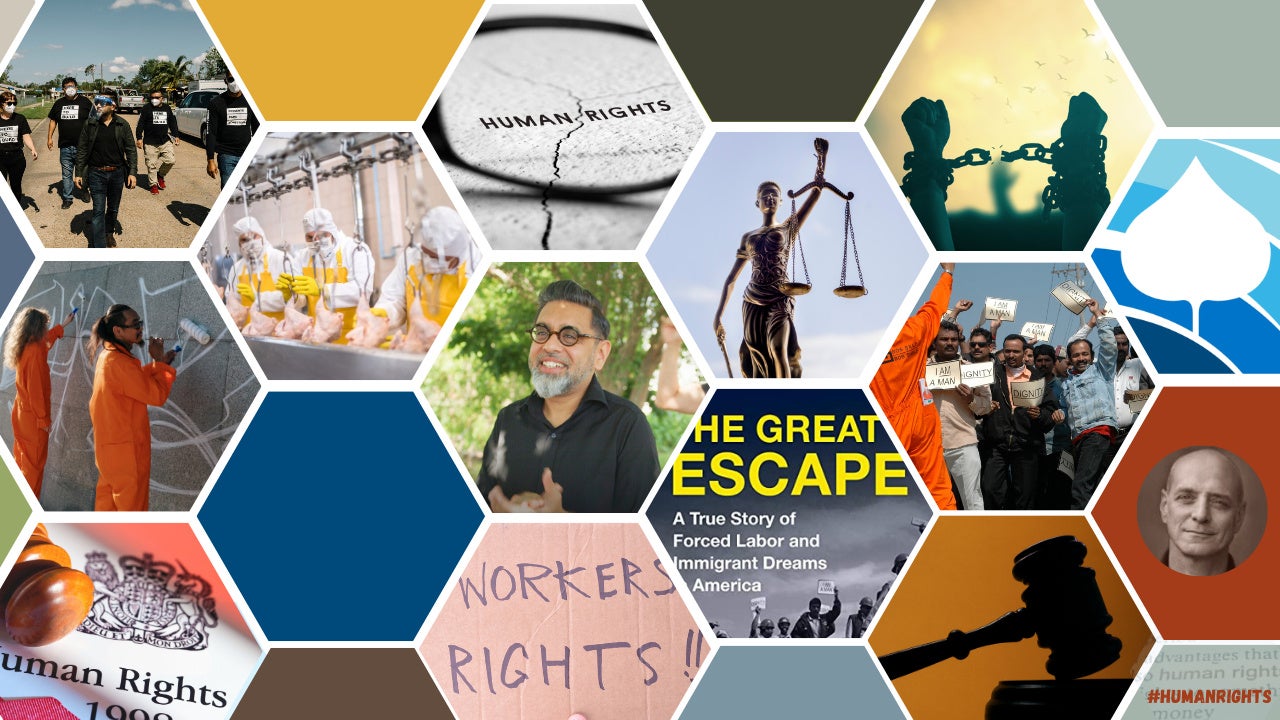Job Quality Newsletter – Human Rights at Work – The Aspen Institute


The Universal Declaration of Human Rights was established just over 75 years ago by the United Nations. Constructed by people from all over the world and translated into over 500 languages, the Declaration outlined an agreed-upon set of rights and freedoms that every person should have. While the Declaration is often known for the civic and social rights it established, it also contained a universal set of economic and work-related rights — Article 23 — including the right to join a union, to be free of discrimination, to receive “equal pay for equal work,” to receive “just and favorable remuneration” ensuring “an existence worthy of human dignity,” and to be free from overwork, forced labor, and slavery.
What comes across strongly in the Declaration is that there is no dividing line between worker rights and human rights — worker rights are human rights. Too often, however, we pretend that the values that foster dignity, respect, and well-being in society shouldn’t or can’t apply in the workplace. Equally troubling is that we in the US often see human rights abuses as tragedies that happen abroad and are blind to those happening in our own communities. Efforts to address dangerous working conditions, punishment for worker organizing, poverty wages, and forced labor in international supply chains often ignore that many of these issues happen within US borders as well.
In the midst of these challenges, though, are calls for a more moral economy that centers human rights and dignity. This issue of our monthly Job Quality Newsletter delves into the vital intersection of human rights and economic systems, and how we can transform the workplace and our economic policies to live up to the promises made in the Declaration. From tackling the hidden realities of prison labor and human trafficking to addressing the long-standing challenges of workers in meat processing and envisioning a human rights-centered economy, we invite you to engage with the diverse perspectives and solutions presented here as we collectively work toward an economy free of exploitation — one built on inclusion, dignity, and fairness.
Webinar October 10 — Prison Labor, Human Rights, and the Legacy of Slavery
Join us on Thursday, October 10, from 2:00 p.m. to 3:15 p.m. EDT for our webinar, “A Hidden Workforce: Prison Labor, Human Rights, and the Legacy of Slavery.” This session will explore the impact of the 13th Amendment’s prison labor exception and its historical ties to convict leasing. We’ll discuss ongoing racial injustices in the US incarceration system, including the harsh conditions faced by incarcerated workers. Panelists will address issues like minimal pay, unsafe work environments, and the lack of labor protections while considering reforms for more humane treatment. Don’t miss this first part of a two-part series by the Aspen Institute Economic Opportunities Program. Register now to secure your spot!
Video — Economics Reimagined: Building a Human Rights Economy
In January 2023, we hosted a discussion on “Economics Reimagined: A Discussion on Building a Human Rights Economy” in collaboration with The New School’s Institute on Race, Power and Political Economy. This event, highlighting a new partnership between The New School and the UN’s Office of the High Commissioner for Human Rights, addressed how economic policies driven by profit contribute to wealth inequality and social instability. Panelists discussed aligning economic policies with human rights principles and the legacy of the Universal Declaration of Human Rights in shaping a more just economy. In the accompanying blog, Natalie Foster and Shelly Steward — senior fellow and former director of our Future of Work Initiative, respectively — delve into the pressing need for an economic paradigm shift. Watch the recording to learn more.
Video — Labor and Immigration with Saket Soni
In his latest book, “The Great Escape: A True Story of Forced Labor and Immigrant Dreams in America,” Saket Soni reveals the harsh realities faced by immigrant workers, highlighting their struggles against exploitation and abuse. Speaking at the Aspen Institute, Soni — the executive director of Resilience Force, one of our Job Quality Fellows, and a 2024 recipient of the John P. McNulty Prize — provides an important narrative on the broader implications of labor and immigration policies and the ongoing quest for justice.
Video — Improving Jobs in Meat and Poultry Processing
This virtual discussion — hosted in partnership with Food & Society at the Aspen Institute — focuses on the severe working conditions in the meat and poultry processing industry, a sector crucial to the food supply chain. Panelists address issues such as safety hazards, inadequate pay, and exploitative practices that affect workers. Watch this video to learn about proposed solutions and policies aimed at improving job conditions and fostering a more humane and sustainable industry.
Video — A Workers’ Bill of Rights: What We Want and How to Get There
In the final segment of our labor law series, panelists explore the evolving landscape of workers’ rights in response to modern economic challenges. This conversation examines what a contemporary workers’ bill of rights might look like and the steps needed to achieve it. Reflect on historical labor reforms and consider new strategies to ensure fair treatment and equitable opportunities for today’s workforce.
The Economic Opportunities Program advances strategies, policies, and ideas to help low- and moderate-income people thrive in a changing economy. Follow us on social media and join our mailing list to stay up-to-date on publications, blog posts, events, and other announcements.

Student loans often follow borrowers for years, sometimes decades. Even people who fully understand how much they borrowed can feel...

It was a busy week for RIA aggregators. There were a few large moves, including $235 billion multi-family office Cresset...

Blog Posts Archives UnfavoriteFavorite February 27, 2026 Weave: The Social Fabric Project Subscribe to Weave’s Newsletter This story was originally...